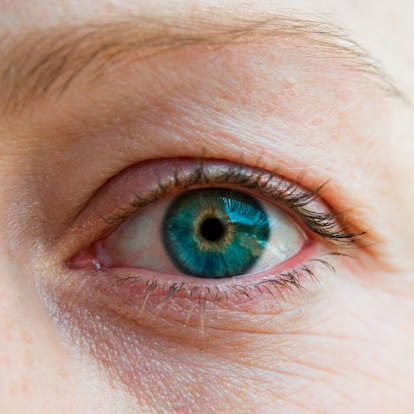Bayer is pleased to announce that the National Institute for Health and Care Excellence (NICE) has made the final recommendation for aflibercept for the treatment of visual impairment due to macular oedema secondary to branch retinal vein occlusion (BRVO).1
Bayer is pleased to announce that the National Institute for Health and Care Excellence (NICE) has made the final recommendation for aflibercept for the treatment of visual impairment due to macular oedema secondary to branch retinal vein occlusion (BRVO).1
NICE concluded within the final guidance that aflibercept is more cost effective than laser photocoagulation (existing first-line treatment) for untreated visual impairment caused by macular oedema secondary to BRVO. NICE also concluded that aflibercept is more clinically effective when given before, rather than after, laser photocoagulation.1 Following full guidance, the NHS in England and Wales now has 90 days to implement the guidance to ensure that all eligible patients have access to aflibercept as soon as possible.
This positive decision means that over 13,000 patients2 will have first-line access to an anti-VEGF treatment that has been proven to achieve superior improvements in vision compared to existing first-line treatment (laser).3,4 Bayer is pleased that NICE has recognised the value of aflibercept in this patient population and that all patients, including those newly diagnosed, will have access to treatment that reflects the Royal College of Ophthalmologists treatment guidelines.6
Professor Sobha Sivaprasad, Consultant Ophthalmologist, Moorfields Eye Hospital, London commented: “I am pleased that NICE has finalised this guidance for aflibercept as I am now able to offer an anti-VEGF as a first-line treatment option to patients with BRVO. This will allow patients to achieve the best possible clinical outcomes upon diagnosis and the opportunity to achieve the positive visual outcomes that we see in real-life clinical practice across other retinal conditions.”
BRVO is caused by a blood clot in one of the branches of the main vein in the retina, the light sensitive layer at the back of the eye. Blockages in the retinal veins increase the pressure in the small blood vessels at the back of the eye, which can lead to blood and fluid leaking beneath the macula (macular oedema). If not treated effectively, macular oedema secondary to BRVO can significantly impact a person’s vision.1 This loss in vision can severely affect independence, confidence and the ability to undertake daily activities,1 meaning patients become increasingly dependent on family and carers.
Commenting on what the decision means for patients, Cathy Yelf, Chief Executive, Macular Society: “We are delighted with this final decision from NICE as it means that patients with BRVO will have the best chance possible to preserve their sight and maintain their independence and quality of life. Sight loss can have a devastating impact on an individual and their family so we are pleased the NICE has recognised that patients should have access to an anti-VEGF treatment as soon as possible and in line with guidelines from the Royal College.”
Dr Alexander Moscho, CEO, Bayer UK/Ireland commented: “We are pleased that NICE has finalised its positive decision for EYLEA® for the treatment of visual impairment due to macular oedema secondary to BRVO. This treatment continues to achieve positive results in real-life clinical practice, similar to that demonstrated in clinical trials, and we hope that this will continue for patients with macular oedema secondary to BRVO.”
Aflibercept is an anti-VEGF targeted treatment.7 It is licensed in the UK for the treatment of wet age-related macular degeneration (wAMD), visual impairment due to macular oedema secondary to central retinal vein occlusion (CRVO) and BRVO, visual impairment due to diabetic macular oedema (DMO) and myopic choroidal neovascularisation (mCNV).7 In the UK, funding for aflibercept is mandated for all eligible patients across all licensed indications, except for the mCNV indication.8-13
References
- National Institute for Health and Care Excellence (NICE). Final Appraisal Determination ID844: Aflibercept for treating visual impairment caused by macular oedema after branch retinal vein occlusion. September 2016. Available at: https://www.nice.org.uk/guidance/indevelopment/gid- ta10004 Last accessed: September 2016
- National Institute for Health and Care Excellence (NICE). Final scope: Aflibercept for treating visual impairment caused by macular oedema secondary to branch retinal vein occlusion. https://www.nice.org.uk/guidance/GID-TA10004/documents/final-scope. Last accessed: September 2016
- Campochiaro PA et al. Intravitreal aflibercept for macular edema following branch retinal vein occlusion: the 24-week results of the VIBRANT study. Ophthalmology. 2015 Mar;122(3):538-44.
- Clark WL et al. Intravitreal Aflibercept for Macular Edema Following Branch Retinal Vein Occlusion: the 52-week results of the VIBRANT study. Ophthalmology. 2016 Feb;123(2):330-336.
- National Institute for Health and Care Excellence (NICE). Technology Appraisal Guidance (TAG) 283 ‘Ranibizumab for treating visual impairment caused by macular oedema secondary to retinal vein occlusion’ https://www.nice.org.uk/guidance/ta283. Published 22 May 2013. Last accessed: August 2016
- Royal College of Ophthalmologists. Clinical guidelines: Retinal Vein occlusion (RVO) guidelines. Royal College of Ophthalmologists website 2015. Available at: http://www.rcophth.ac.uk/wp- content/uploads/2015/07/Retinal-Vein-Occlusion-RVO-Guidelines-July-2015.pdf Last accessed: August 2016
- EYLEA® summary of product characteristics (SmPC) August 2016
- Scottish Medicines Consortium. aflibercept 40mg/mL solution for intravitreal injection (Eylea®) SMC No. (857/13). Available at: http://www.scottishmedicines.org.uk Last accessed: August 2016
- National Institute for Health and Care Excellence. Technology Appraisal 294. Aflibercept solution for injection for treating wet age related macular degeneration. July 2013
- National Institute for Health and Care Excellence. Final Appraisal Determination. Aflibercept for treating visual impairment caused by macular oedema secondary to central retinal vein occlusion. February 2014
- Scottish Medicines Consortium. aflibercept 40mg/mL solution for intravitreal injection (Eylea®). April 2014. Available at: http://www.scottishmedicines.org.uk Last accessed: August 2016
- Scottish Medicines Consortium. aflibercept, 40mg/mL solution for injection (Eylea®) SMC No. (1003/14). Available at: http://www.scottishmedicines.org.uk Last accessed: August 2016
- National Institute for Health and Care Excellence. Final Appraisal Document – Aflibercept for treating diabetic macular oedema. July 2015

